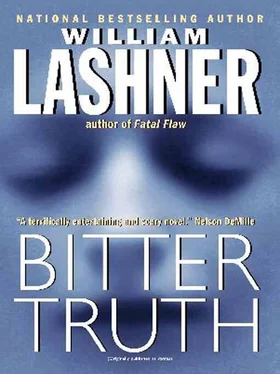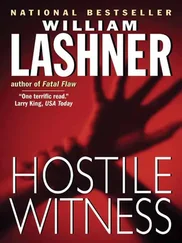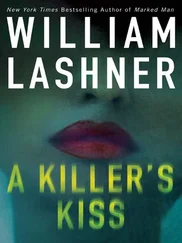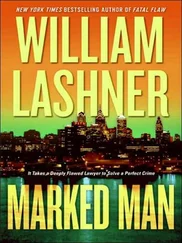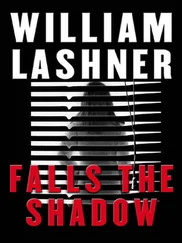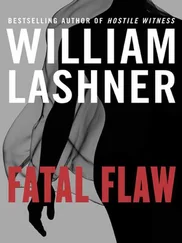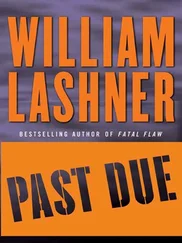“How would I know? I’m just the lawyer.”
“Always the last to know, right, Victor?”
“That’s right.”
He reached into his jacket pocket and pulled out a piece of paper. “I have you down as a pallbearer. When they turn the bier around we need you to go on up and grab a handle.”
“I can’t believe there aren’t six men who were closer to Jimmy than me.”
“There are,” said Dante, leaning forward in preparation to stand. “But it will take more than six to carry Jimmy off to his final reward. There’s a limo for the pallbearers that will ferry you to the cemetery. They’ll need you there too.”
“I wasn’t planning to go to the cemetery,” I said.
He looked at me and sucked his teeth. “Take the limo.”
When it was time to wheel the coffin out, there were ten of us jockeying for position at the handles. From the other side of the coffin I caught Cressi grinning at me. “Yo, Vic,” he mouthed, bobbing his head up and down. Anton Schmidt was also there, red-eyed beneath his thick glasses. Then, with the rabbi silent and the mourners standing, we walked beside the coffin on its journey out of the chapel. At the side door, with the hearse waiting, its back door swung wide, we all tightened our grip on the handles and heaved. The coffin didn’t budge.
“Put your backs into it,” said the guy from the funeral home. “Ready, one, two, and three.”
We were able, with much grimacing, to lift the coffin and, each of us taking tiny steps, carry it, amid groans and curses, to the hearse, where it slid through on rollers to the rear of the cold black car.
Our limo was long and gray and just as cold as the hearse, though we didn’t have as much room to stretch out as did Jimmy. I sat shotgun, with the window to the back open so I could hear the conversations of the other men jammed shoulder to shoulder inside the rear benches.
“That was a very moving service,” said one of the men in the back.
“I thought the son was touching, just touching,” said a second. “When he talked about Tyson it almost brought tears.”
“If you see a McDonald’s or something,” said a third man to the driver, “why don’t you pull over. I could use a little lunch.”
“What kind of slob are you, Nicky, we’re burying a man here.”
“He’d a understood.”
“We can do drive-through,” said a different man.
“I have to follow the hearse,” said the driver.
“So tell the hearse to go too. Get an extra value meal for Jimmy. Like a gesture of respect, you know. One last stop at them golden arches.”
“Too many stops at the golden arches,” said Anton Schmidt softly, “that’s why he’s dead.”
“What, he got wacked at a McDonald’s?”
We drove up Broad Street to the Roosevelt Extension of Route 1 and then hit the Schuylkill Expressway, west, to get us to the cemetery. Buzzing past us were a horde of speeding cars and vans, swiping by each other as they changed lanes with a frenzy. I turned around and over the heads of the pallbearers I saw the long procession of cars, their headlights lit, following us slowly, and I imagined them all lined up at the McDonald’s drive-through, each putting in its order for fries and Big Macs.
“Maybe there’s a party or something after,” said Cressi. “Hey, Victor, your people, they throw wakes after they bury their dead?”
“We sit shivah, ” I said. “That’s where we visit the families and say Kaddish each evening.”
“ Kaddish, all right,” said Cressi. “I used to date a Jewish broad. You’re talking booze, right?”
“That’s Kiddush, which is different,” I explained. “ Kaddish is the prayer for the dead.”
“I thought I’d see Calvi at the ceremony,” said someone else.
“Probably has gotten too fat to leave the pool down there.”
“Last I heard, the fuck had prickly heat.”
“You dated a Jewish girl, Cressi? Who?”
“That Sylvia, what lived in the neighborhood, remember her?”
“Stuck up, with the hats and the tits?”
“That’s the one.”
“You dated her?”
“Sure.”
“How far you get?”
“You think I dated her for the conversation? I want conversation I’ll turn on the television.”
“Why’d she go out with a bum like you?”
“What do you think, hey? I got charm.”
“You got crabs is all you got.”
“You ever tell your mother you were dating some Jewish girl?”
“What are you, a douchebag?” said Cressi. “My mother would have fried my balls for supper I’d had told her that.”
“With a little garlic, some gravy and mozzarella, they’d probably taste all right.”
“Yeah but such small portions.”
General laughter.
“Hey, Victor, about this shiver?” said Cressi.
“ Shivah .”
“They have food?”
“Usually.”
“Well then, after the burial, I say we do some shivering.”
“But if you pass a McDonald’s before that…”
At the cemetery, we strained our backs lugging the heavy metal coffin from a hearse to the cart and then pushing it over the uneven turf to the hole in the ground. As we shoved our way into places around the hole, like a crowd at a street show, a man from the funeral parlor handed out yarmulkes and little cards with prayers and then the rabbi began. The rabbi spoke a little about one-way journeys and the son sobbed and the rabbi spoke some more about ashes and dust and they lowered the casket into the hole with thick gray straps and the son sobbed and then a few of us who pretended to know what we were doing said Kaddish for James Dubinsky. I read the transliteration of the Hebrew on the little cards they handed out so I don’t know if my words counted, but as I read yis-gad-dal v’yis-kaddash sh’meh rab-bo, as I struggled through the faintly familiar pronunciation, I thought of my grandfathers, whom I had helped bury, and my grandmothers, whom I had helped bury, and my father, who was coughing out the blood in his lungs as he got ever closer to that hole in the ground, and I hoped with a strange fervor that my words were doing some good after all.
The rabbi tossed a shovelful of dirt onto the wide wooden lid of the coffin, some pebbles bouncing, and then the son, and then the rest of us, one by one, tossing shovelfuls of dirt, one by one, and afterward we walked slowly, one by one, back to the road where our cars waited for us.
“It’s a sad day, Victor.” A thick, nasal voice coming from right next to me. “Jimmy, he was a hell of a guy. Hell of a guy.”
“Hello, Lenny,” I said. “Yes, Jimmy was something.”
The nasal voice belonged to Lenny Abromowitz, a tall barrel-chested man of about sixty, with plaid pants and the nose of a boxer who led with his face. He had been a prize-fighter in his past, and a professional bruiser, so I’m told, who did whatever was required with that brawn of his, but now he was only a driver. He wore a lime-green jacket and white patent leather shoes and, in deference to the somber occasion, his porkpie hat was black. And as he walked beside me he draped one of his thick arms over my shoulder.
“Haven’t seen much of yas, Victor. You don’t come to the restaurant no more?”
“I’ve been really busy.”
“Ever since the Daily News put those pictures on the front page, people they don’t come around so much as before.”
“Oh, were there pictures?” Of course there were pictures. The Daily News had rented a room across the street from Tosca’s and stationed a photographer there to capture exactly who was going in and going out of the notorious mob hangout, plastering the pictures on a series of front pages. Politicians and movie stars and sports heroes and famous disc jockeys were captured in crisp blacks and whites paying court to the boss. Each morning everyone in the city wondered who would be the next cover boy and each evening the television news broadcasts started with pointed denials of any wrongdoing by that day’s featured face. The only ones who weren’t impressed were the feds, who had rented the room next to the Daily News’ s room and were busy taking pictures of their own. As would be expected, since the front-page series, Tosca’s business had been cut precipitously.
Читать дальше
